Best Way to Get AI Feedback on a Written Assignment
Author: Alaxendra Bets
At: November 4, 2025
Feedback on assignments helps students improve the quality of their content. Numerous studies have proven that AI-enhanced feedback improves student performance due to its personalized nature.
And specifically, substantial improvements are shown in the areas of
- organization structure
- evidence integration
by using AI feedback systems. Both of these two factors are something that teachers often ignore while reviewing assignments.
This not only saves time for both students and educators, as many studies have shown that some grading tasks can decrease by 80% when AI assistance is used correctly.
AI Tools for Students Need Feedback
As students, you can utilize AI tools that help improve your essay writing, report writing, and other academic assignments by pre-checking facts, grammar, and providing suggestions to enhance them.
Actually, AI feedback systems utilize advanced technology called Natural Language Processing, which analyzes your writing by comparing it to existing content and provides instant suggestions.
This system checks multiple aspects of your writing, including grammar, essay structure, citations, and clarity. So gone are the days of waiting for teacher feedback, as AI now provides immediate responses at any time.
The following are the tools that can help improve your academic writing.
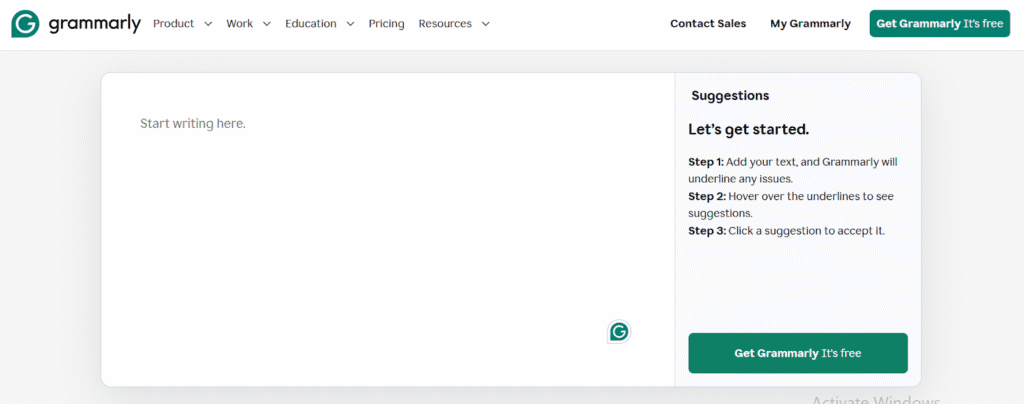
Grammarly is one of the most popular options for basic editing of assignments and essays, offering features such as grammar checking, style suggestions, and clarity improvements.
You can download its extension, which can help with everything from proposal writing to dissertation writing.
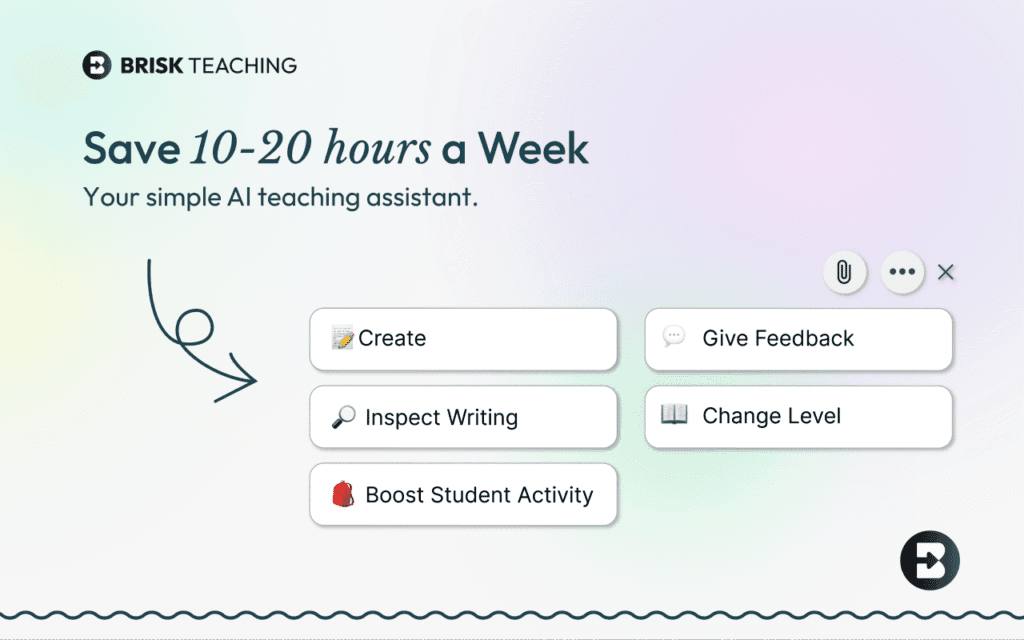
Brisk teaching is specifically designed to provide structured feedback based on clear, defined specifics.
You can customize it to match assignment requirements. It has special features called “glow and grow” feedback that highlights both strengths and areas of your assignment for improvement.
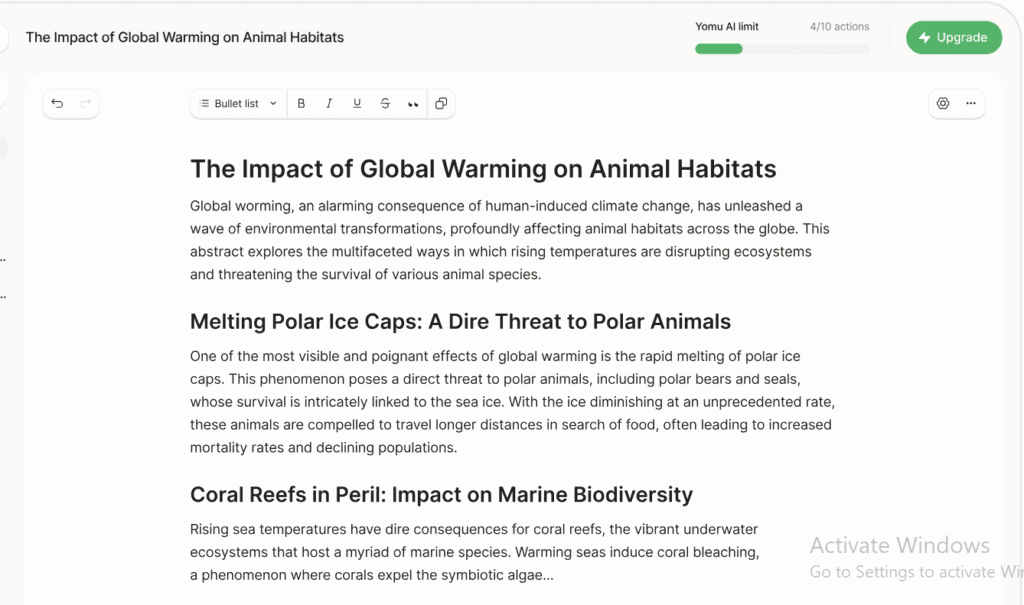
This comprehensive tool is loaded with features, which include
- feedback systems
- citation management
- document assistance
With the help of these features, this software enables the writing of entire sections while also providing targeted feedback suggestions, making it particularly useful for academic and research papers.
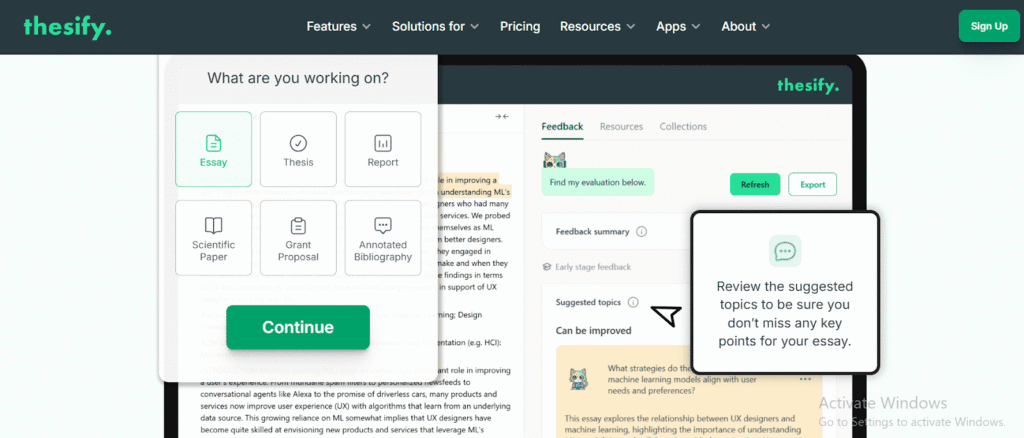
AI feedback is most valuable for argumentative essays, as it can provide a detailed analysis of thesis development, review the integration of evidence, and check the logical flow.
If you are looking for the best AI feedback tool to improve the quality of your humanities essays, Thesify is the best option for you.
This tool provides detailed and actionable feedback to students, explaining the weaknesses in their content.
However, it doesn’t provide grammar error corrections or basic editing; you have to use Grammarly.
Tips
- Remember, these tools work best as supplements to human feedback and act as assistants, not replacements.
- So, don’t trust AI suggestions unquestioningly and constantly review them critically before accepting, as they may sometimes provide generic content.
- For advanced students who are working on a Ph.D. thesis or advanced projects, AI tools can help them to deal with the technical aspects of editing; however, you must focus on developing your arguments and analysis.
Comparative Analysis: AI Tools vs. Traditional Feedback
| Aspect | AI Tools | Traditional (Human) Feedback | Comparison Result |
|---|---|---|---|
| Speed | Ai told is very fast — only takes 0.8 seconds per essay | For humans, it takes hours to check each essay | AI is significantly quicker and provides results more quickly. |
| Consistency | Gives steady and consistent results every time | May change slightly depending on the mood or the day of the teacher | AI wins there as it remains consistent |
| Creativity Check | Has a limited understanding of creative or unique ideas | Humans understand and appreciate creativity better, and also give new, trending ideas | Humans win here |
| Efficiency | Can check hundreds of essays quickly without getting tired | Slows down as efficiency decreases after reading many essays | AI is more efficient here |
| Best Use | works best for grammar, spelling, and structure | Recommended for producing ideas, emotions, and creativity | Should be used together to get higher results |
Subject-Specific AI Feedback Tools
The following are some subject-specific AI feedback tools that can help you with your content.
STEM Writing
Technical and scientific writing requires detailed checking of citation formatting and identifying gaps in methodology descriptions to ensure that complex explanations are clearly presented.
For this, we suggest tools like Writefull,
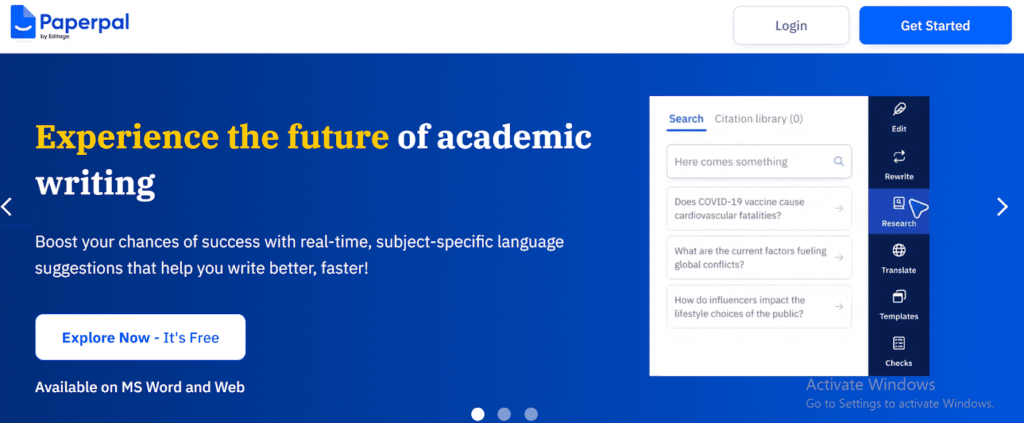
which specializes in academic writing, as it is trained on millions of journal articles and has been made most effective by providing research paper feedback.
Creative Writing
Although AI has some limitations in assessing purely creative elements in content, it excels at providing feedback on narrative structure, character development consistency, and dialogue effectiveness.

And for this, Claude AI is the best available option on the market, as it has the trust of millions of creative writers due to its ability to identify any sort of plot holes and narrative inconsistencies.
Comparison Table: Best AI Feedback Tools for Written Assignments
| Category | Tool | Main Features | Best For |
|---|---|---|---|
| Grammar & Editing | Grammarly | Grammar correction, clarity, tone, and style checks | Essays, proposals, dissertations |
| Custom Feedback | Brisk Teaching | “Glow and Grow” structured feedback, customizable criteria | Academic assignments & classroom tasks |
| Research & Academic Writing | Yomu AI | Feedback, citation management, and document editing | PhD or research-level writing |
| Argumentative Writing | Thesify | Thesis evaluation, evidence review, and logical structure analysis | Humanities or analytical essays |
| Scientific Writing | Writefull | Citation formatting, academic phrasing, and clarity analysis | STEM papers & reports |
| Creative Writing | Claude AI | Storyline, character, and dialogue evaluation | Fiction and creative writing |
Limitations and Challenges of Using AI Feedback Tools
The following are some challenges you may encounter when using AI tools.
- Accuracy and Reliability Concerns
Sometimes AI tools struggle with reviewing nuanced cultural references, complex interdisciplinary arguments, or checking the accuracy of specialized technical content.
These systems, in particular, exhibited biases against non-native English speakers, resulting in the misclassification of their work.
- Over-reliance Risks
Students who heavily rely on AI tools for reviews might undermine their development of critical self-evaluation skills.
AI should be used as a component of a broader feedback ecosystem, which should include peer review, instructor guidance, and self-reflection.
- Privacy and Security Considerations
Students might share sensitive academic content with external platforms while seeking review from AI. This is alarming, and students must understand the data usage policies before selecting any tool.
Frequently Asked Questions
Q1: Will Using AI Feedback Tools Be Considered Cheating by My Teachers?
Most AI feedback tools are acceptable when used for editing, proofreading, and fact-checking, rather than content generation. However, always check your school’s or your institution’s specific AI policy and discuss with your teacher if you’re unsure.
Q2: How Accurate Are AI Fact-Checking Tools for Student Research Papers?
The accuracy rates of AI fact-checking are high, reaching over 70%. However, it doesn’t mean you should solely depend upon it; always verify important facts with additional academic sources.
Q3: What Should I Do If AI Suggests Changes That Don’t Match My Assignment Requirements?
Don’t trust AI unquestioningly; always prioritize your institution’s assignment guidelines and teacher instructions over AI suggestions.
AI tools can sometimes be wrong and provide generic advice that may not align with your institution’s assignment requirements.


